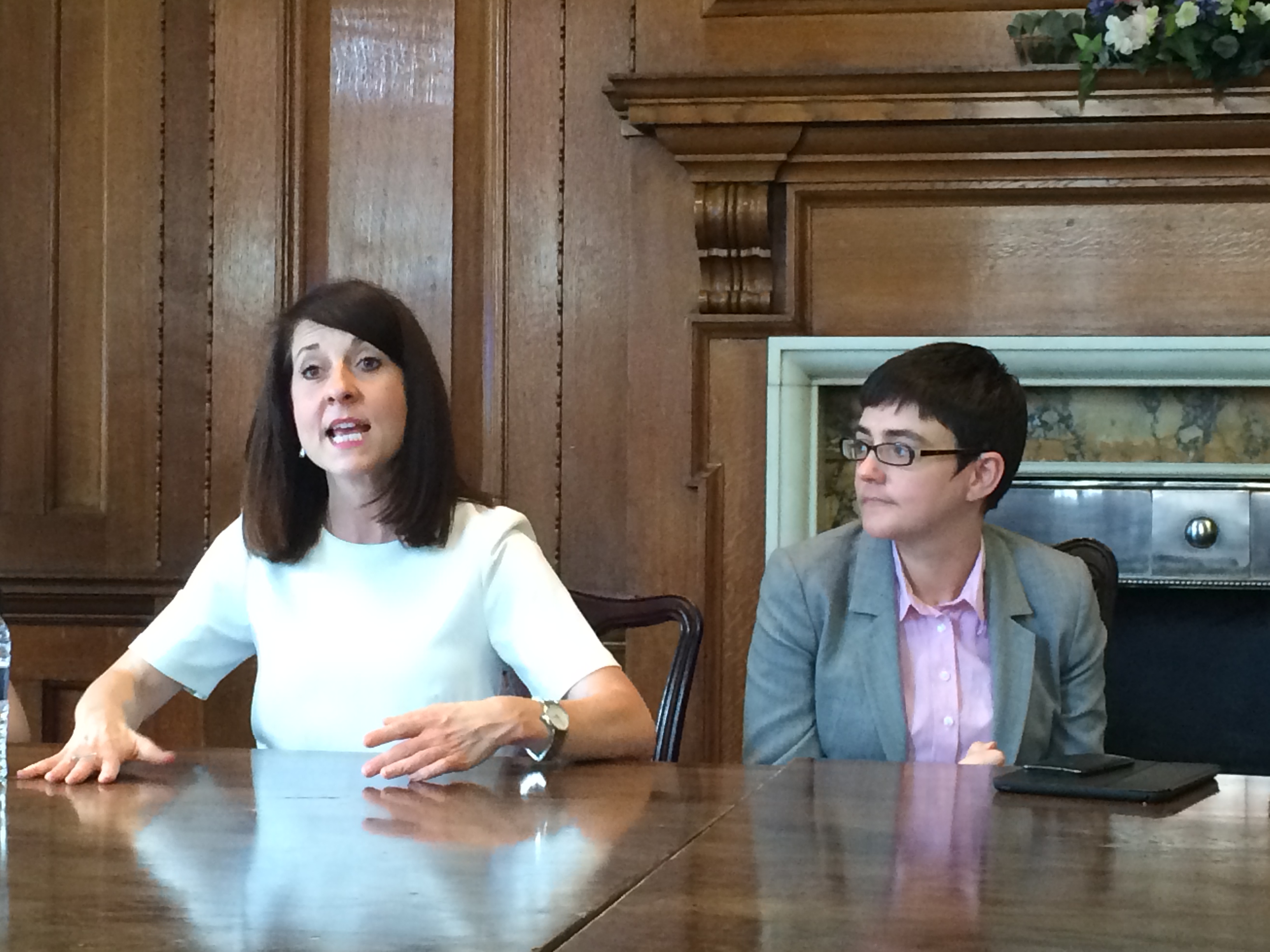Council leader says she was overlooked by some Labour members in parliamentary selection contest for being a woman
Thursday, 30th July 2015

CAMDEN Council leader Sarah Hayward has told how she was overlooked in a parliamentary selection contest by some local Labour Party members because she is a woman.
In a discussion on women in politics, Cllr Hayward, who wanted to succeed Frank Dobson as the MP for Holborn and St Pancras, said she had been openly told that a man would be taken more seriously as the area’s representative.
She was taking part in a Labour Party group talk hosted by leadership candidate Liz Kendall at the Town Hall last Thursday.
The meeting heard a string of horror stories from members from all parts of London and the south-east over how women had been obstructed in their progress in politics.
Cllr Hayward did not say her gender was the sole reason for losing out to former director of public prosecutions Sir Keir Starmer to follow Mr Dobson, and finishing third behind lawyer Raj Chada. But, even in a north London constituency considered by members to be cosmopolitan and forward-thinking, she said she had experienced a form of prejudice.
“When I stood for selection here, in this constituency, to be the member of parliament,” she told the meeting, “I had party members telling me that they were going to vote for one of the male candidates because they thought they would be taken more seriously as a man. I was running an organisation which has a gross budget of £1.3billion. I’m not sure how more serious you can get. You may have views about whether I do that well or not, but it is an important role.”
She said that, although the leadership election process was made fairer under Ed Miliband’s time at the top, the party structures were still “arcane”.
It is understood that one of the comments made to Cllr Hayward during the selection contest was that Mr Starmer was “ready to go straight on to Newsnight” – a view which angered Cllr Hayward’s supporters, given her track record of representing Camden on a series of well-watched current affairs programmes and her background in communications. Cllr Hayward herself has celebrated the local council group’s share of women councillors and cabinet members. But she said the success here was not replicated everywhere, adding: “I think the structures in the Labour Party do block. It is too easy for people to use the Labour Party structures to block people. That’s not just about careers, it’s about the way we welcome people to meetings and it’s up to all of us to do things about it.”
Members from other branches of the party said they had been to meetings where women were regularly shouted down, while complaints were ignored by central office if they came from constituencies not considered electoral targets.
Ms Kendall said that it was time for Labour, despite the party’s efforts to increase female representation in politics, to have a “no ifs, no buts” approach when members came across prejudice. There is a school of thought within the party nationwide that it would be doing itself a disservice if it does not elect a woman as either leader or deputy leader.
“I was always supported and when I was in my 20s I thought, ‘oh, what’s the problem here’,” Ms Kendall said.
“As you get older, you realise that it is men that are at the table. They speak the loudest, they get themselves in the positions, they have the meetings where it suits them, they go to the pub afterwards, they play football and they build up these networks – and actually it is tough.
“If you are a woman who is strong, you can be criticised for that. They say, ‘oh, she is a bit of a ball-breaker, she’s a bit tough’. No. If you were a man it wouldn’t be any different. So you need supporters around you because you get strength.”